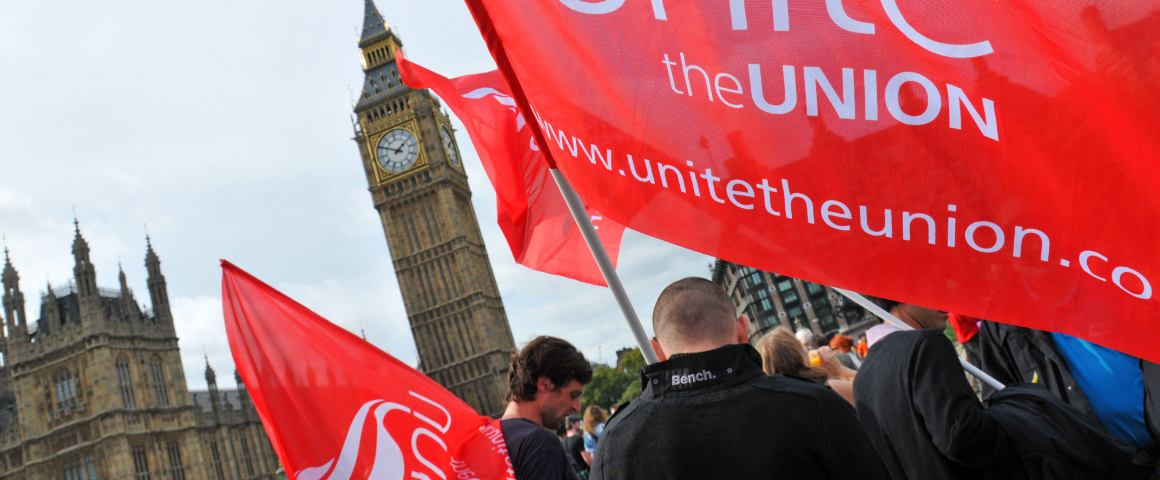Unite conference says profit-driven economy the main barrier to a just transition
The Unite policy conference has backed nationalization of the energy sector, condemning a model that puts corporate profit ahead of human need and the climate. [Unite is the second-largest union in Britain, with over 1.2 million members in construction, manufacturing and transport.]
Moving Composite 5 on nationalization, delegate James Findlay from Scotland said that, in Britain’s current energy sector, “profit is the priority – workers, customers and communities are either a hurdle or a means to maximize dividends to shareholders.”
Energy is “fundamental to the infrastructure of the country,” he pointed out, calling on the union to demand of whatever government is in power that it “nationalize the energy and utilities industries in order to stop the profiteering and invest in the energy infrastructure.”
Delegates had earlier backed an executive council statement arguing that an economic system which “prioritizes profiteering and wealth extraction over climate and social responsibility” was the key barrier to a just transition to renewable energy sources.
The union would continue “exposing and challenging this economic model while promoting worker-led alternatives,” the statement read, noting the work of the Unite Investigates team and the Take the Power Back campaign.
But the statement prompted fierce debate in the conference hall, as it replaced Composite 6 on energy, which had opposed all new exploration for oil and gas reserves and called on the union to campaign against this.
West Midlands delegate Nina Barbosa said the transition from fossil fuels was not “solely an issue for the energy and carbon-intensive industries.
“This is an issue that affects all of us.
“If we just burn the fossil fuel that we already know about, it will push us beyond” a 1.5°C temperature rise and into a “climatic death spiral,” she said, “so there is no justification for looking for more.”
But Hamish Campbell from Scotland countered that Unite had to stand up for properly paid jobs.
“The people where I come from are equally concerned about warming the house as they are about global warming,” he said. “Working communities need work, Aberdeen needs oil.”
Speakers called on union members not to attack other members’ jobs and said that clarity was needed on quality employment in renewables before a single job in oil and gas could be sacrificed – otherwise the transition away from fossil fuels could leave social and economic scars as deep as Margaret Thatcher’s war on coal miners.
Morning Star
Get People’s Voice delivered to your door or inbox!
If you found this article useful, please consider subscribing to People’s Voice.
We are 100% reader-supported, with no corporate or government funding.




